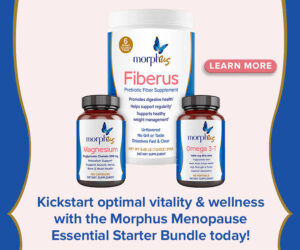
Periodontal disease is the name given to a group of disorders including gingivitis (the early stage of periodontal disease) and pyorrhea, also known as periodontitis (the advanced stage).
Causes of periodontal disease
Periodontal disease is the end result of a combination of dietary, hereditary, and lifestyle factors:
• cigarette smoking
• excess sugar
• excess refined foods
• excess alcohol
• excess caffeine
• not enough vitamins (vitamin A, vitamin C, bioflavonoids, vitamin E, folic acid, and other B vitamins)
• not enough minerals (calcium, magnesium, zinc)
• not enough antioxidants
• not enough fiber
• poor dental hygiene
Gingivitis is caused by plaque, the sticky material made up of bacteria, mucus, and food particles that attach to the teeth. As the plaque expands, the gums become more and more swollen and infected.
How bad can it get?
When gingivitis progresses to pyorrhea, the bone supporting the teeth erodes due to infection. Abscesses are common, causing halitosis (bad breath), bleeding, and sore gums. Some cases may require surgery but the majority can be helped by the natural approaches described below.
Dietary changes
Aside from surgery and dental hygienist therapy, a great deal can be done through diet and lifestyle changes.
• No sugar. Sugar weakens the immune system’s ability to fight bacterial invasion and must be eliminated altogether from the diet.
• Lots of fiber. Follow a high-fiber diet (65% of the calories from complex carbohydrates: fruits, vegetables, whole grains, and legumes).
Natural oral hygiene
• Regular toothpaste with fluoride should be discontinued. It’s best to use a combination of hydrogen peroxide and baking soda (sodium bicarbonate) for cleaning teeth.
• Another alternative to regular toothpastes is tea tree oil, a natural antiseptic. Tree tree oil can also be used in a diluted form as a mouth rinse.
• Daily flossing or gum stimulation is beneficial.
• Ozone therapy is one of the most effective natural remedies against periodontal disease. Apply it to the gums and other infected areas of the oral cavity.
Topical relief
Inflamed gums can be soothed by topical aloe vera gel, clove oil, and/or tea tree oil.
Supplements for periodontal disease
The following supplemental vitamins, minerals, and herbs should be considered. A qualified natural health care practitioner should adjust the dosages according to degree of severity and response to therapy.
• Beta-carotene from green products like spirulina, chlorella, or blue-green algae: 1 tbsp or more daily
• Coenzyme Q10: 200-400 mg daily
• Vitamin A: 25,000-100,000 I.U. daily in a liquid, emulsified form for higher absorption
• Vitamin B complex: 250-500 mg daily
• Vitamin C: 10,000 mg or more daily as tolerated by bowels
• Quercetin: 1000-3000 mg daily
• French Maritime Pine Bark (pycnogenol): 300 mg daily
• Vitamin E: 400-1200 I.U. daily
• Calcium citrate: 1000 mg daily
• Magnesium citrate: 500 mg daily
• Selenium: 200 mcg daily
• Zinc: 50-100 mg daily
• Copper: 5-10 mg daily
• Aloe vera juice: 2 ounces three times daily
• L-arginine: 3000-6000 mg daily
• Plant-based proteolytic enzymes with pancreatin: 2-4 capsules three times daily after meals
• Thymus gland extract: 2-6 capsules daily
Parasite complications
Periodontal disease frequently, if not always, is complicated by the growth of parasites. Rather than using prescription antibiotics (which are often ineffective), use one or more of the following natural antibiotics. Dosages should be individualized and determined for you with the help of a naturopath or holistic medical doctor.
• Astragalus tincture
• Cat’s claw tincture
• Echinacea tincture
• Goldenseal tincture
• Calendula tincture
• Propolis tincture
• Hypericum (St. John’s wort) tincture
• Colloidal silver
• Myrrh tincture
• Olive leaf extract
• Stabilized oxygen drops or other forms of oxygen therapy (e.g. ozone cream, Bioxy Cleanse, etc.)
• Wormwood, cloves, and black walnut (in an anti-parasitic herbal combination program)
• Gentian
• Garlic
Also, be sure to include a good probiotic supplement of healthy bacteria (Lactobacillus acidophilus, bifidobacteria, and/ or Saccharomyces boulardii) to fight the parasites.
Dr. Zoltan Rona










